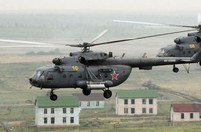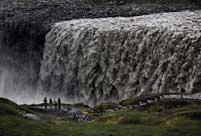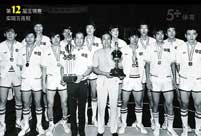 Chinese Air Force's combat group organizes actual-combat training
Chinese Air Force's combat group organizes actual-combat training Heilongjiang issues orange alert for severe flood
Heilongjiang issues orange alert for severe flood
 'Zombies' haunt Kaohsiung MRT
'Zombies' haunt Kaohsiung MRT
 How do politicians and royal families spend holidays?
How do politicians and royal families spend holidays?
 Prisoners take wedding dress photos to welcome Qixi festival
Prisoners take wedding dress photos to welcome Qixi festival
 Chinese characters tattoos: be careful to choose the right characters!
Chinese characters tattoos: be careful to choose the right characters!
 India launches first indigenous aircraft carrier
India launches first indigenous aircraft carrier
 Questioning China's real achievements
Questioning China's real achievements
 Xinhua sports photo of week (Aug. 5- Aug. 11)
Xinhua sports photo of week (Aug. 5- Aug. 11)KATHMANDU, Aug. 13-- A murder case during the long insurgency in Nepal has come into the limelight and has stirred a national debate between human rights groups and political figures in this Himalayan nation.
The 16-year old school boy Krishna Prasad Adhikari from Chitwan district was murdered allegedly by Maoist guerrillas in 2004, when the Maoist insurgency was at its peak.
Since his murder, Adhikari's parents have been demanding for a thorough investigation of the case and called for the prosecution of UCPN (Maoist) cadres involved in the killings.
Last week Adhikari's parents were taken to a hospital after fasting for several days. They have vowed to fast until death if their son's death would not be given justice.
Adhikari's parents were semi-conscious when brought to the hospital and their condition is deteriorating. The parents' condition has drawn the attention of human rights groups, political parties and the media
There are several such war cases in Nepal which have not been settled yet and frequently come into the surface. More than 13,000 people lost their lives during the 10-year long armed conflict between the then rebel Maoist party and the government.
Such cases make the news headlines and come into the limelight from time to time. Last week, dozens of rights activists were arrested and later freed after they protested in front of the prime minister's office.
The rights defenders are urging the government to investigate the murder case and give justice to family. But the UCPN (Maoist) that launched 10-year long insurgency is of the view that all the war-era cases should be dealt through a Truth and Reconciliation Commission, a transitional justice mechanism on which all the political parties have already agreed.
The Comprehensive Peace Agreement signed between the then warring party UCPN (Maoist) and government in 2005 also called for the creation of such a commission but successive governments have failed to form such body.
The National Human Rights Commission (NHRC), an apex human rights body of the country, on Monday asked the head of the government to probe the case. The NHRC in a press statement on Tuesday further asked the government to implement its recommendation to prosecute the accused at the earliest time possible.
The NHRC sent the case to the government in April 2009, demanding relief and reparations for Adhikari's family. This is the second time NHRC has asked the government to prosecute the alleged killers and provide justice to Adhikari's family.
Twelve Maoist cadres have been accused of involvement in the murder. "We will continue to protest till the murder of my brother is probed," Adhikari's brother, Nur Prasad Adhikari, told Xinhua.
But UCPN (Maoist) leaders have said that bringing the individual cases during the war years will affect the ongoing peace process and the constitution writing exercise. The party has insisted that such cases should be settled through the proposed Commission as provided for in the Nepalese constitution.
"We should be aware that some people are engaged in politicking in projecting such cases," UCPN (Maoist) senior leader Baburam Bhattarai posted in his twitter account on Monday.
Nepal's Apex Court has ordered the government to provide the identity cards to war-era victims. Last year, the court ordered the Nepal government to prosecute a Maoist leader who involved in the murder of a people in Eastern Nepal during the insurgency but the order has not been implemented.
 Helicopters, tanks seen during China-Russia joint drill
Helicopters, tanks seen during China-Russia joint drill SWAT members in Shenyang offer fast defense training class
SWAT members in Shenyang offer fast defense training class Dettifoss: Europe's most powerful waterfall
Dettifoss: Europe's most powerful waterfall  Argentina's president voices support of ruling party
Argentina's president voices support of ruling party 3D painting, new way to promote apartment sale
3D painting, new way to promote apartment sale Review: Asian Men's Basketball Championship
Review: Asian Men's Basketball Championship Air Force's combat group conducts flight training in joint drills
Air Force's combat group conducts flight training in joint drills Lightning causes fire in refinery in Venezuela
Lightning causes fire in refinery in Venezuela Yunnan Wild Animals Park opens to public
Yunnan Wild Animals Park opens to public Top 10 most dangerous jobs in the world
Top 10 most dangerous jobs in the world Geomancy city Ganzhou
Geomancy city Ganzhou 3 Chinese athletes advance to final of Women's Shot Put
3 Chinese athletes advance to final of Women's Shot PutDay|Week|Month